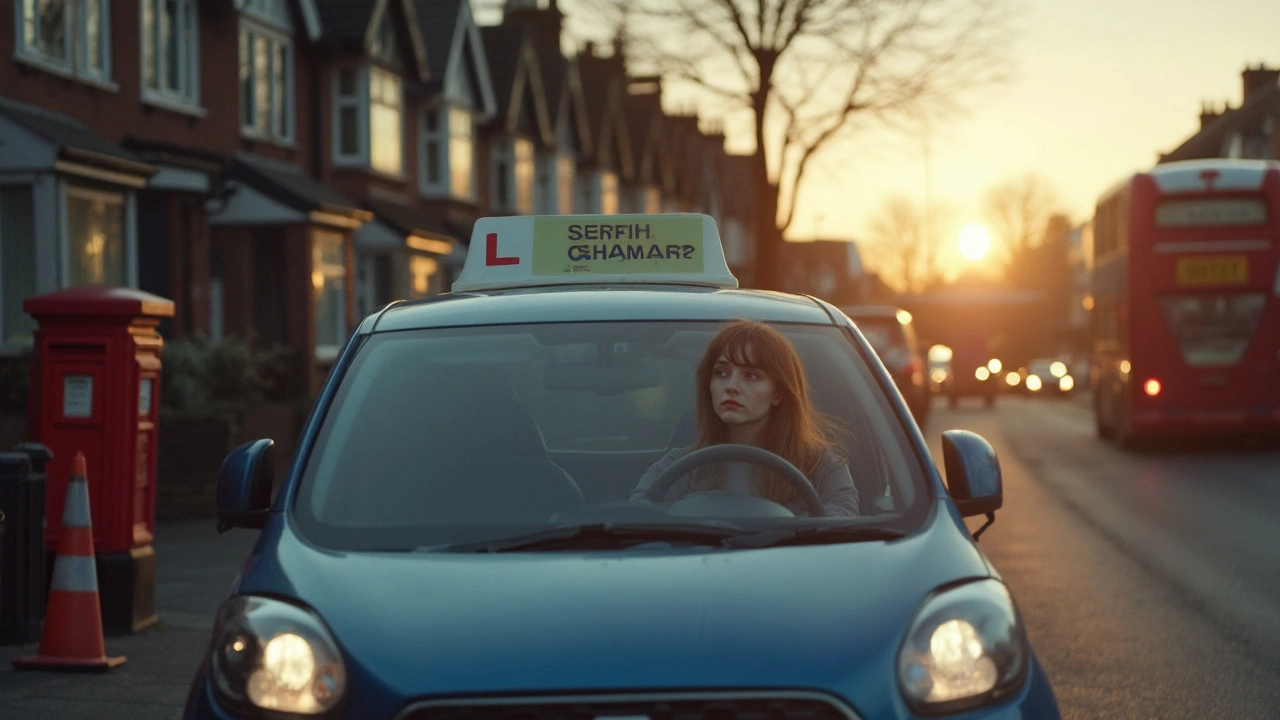Fast‑Track Driving: Simple Ways to Pass Your Test Faster
Want to get behind the wheel sooner? You don’t need a magic formula – just a focused plan, the right practice, and a calm mindset. Below are the steps that actually shave weeks off your preparation.
Build a laser‑focused study schedule
Start by mapping out every day you have until your test. Block 30‑minute slots for theory and 45‑minute slots for practical work. Consistency beats marathon sessions; two short, focused drills are easier to keep sharp than one long slog.
Pick a reliable resource for the theory – a reputable app or the official DVSA mock tests work well. Aim to hit a 90%+ score on three consecutive quizzes before moving on. That confidence carries over to the road.
Practice the exact manoeuvres examiners love
Instead of random city drives, zero in on the eight manoeuvres that cost most candidates. Park on a hill, reverse into a bay, and do the emergency stop. Record each attempt on your phone, then watch back to catch tiny errors you missed while driving.
Ask your instructor to simulate real‑test conditions: no coaching, strict time limits, and the same routes the test centre uses. The more familiar the scenario, the less likely nerves will trip you up.
Don’t forget the “soft skills” – eye‑contact with the examiner, clear signaling, and smooth gear changes. Small habits like checking mirrors five seconds before a turn can boost your score without extra effort.
Master the mental game
Driving anxiety is real, but a few tricks keep it in check. On the night before the test, avoid caffeine and heavy meals. A short breathing routine – inhale for four counts, hold for four, exhale for four – lowers heart rate and clears thoughts.
On test day, arrive early, sit in the car for a minute, and run through a quick checklist: mirrors set, seat adjusted, hands at 9 and 3 o’clock. This routine signals to your brain that you’re ready.
If you slip up, don’t spiral. A brief “reset” – a quick glance at the road, a deep breath, and a return to the next instruction – prevents one mistake from becoming a cascade of faults.
Leverage technology wisely
Driving simulators and VR apps give you a risk‑free environment to rehearse tricky sections. While they can’t replace real car feel, they reinforce the decision‑making process and help you visualize routes.
Use a telematics app on your phone to track speed, braking, and cornering. Spot patterns where you brake hard or accelerate too quickly, then tighten those habits before the test.
Remember, fast‑tracking isn’t about cutting corners – it’s about focused, smart practice that builds confidence fast. Follow the schedule, drill the key manoeuvres, keep your nerves in check, and you’ll be on the road with a licence sooner than you think.
- April 19 2025
- 0 Comments
- Rowan Cavendish
Intensive Course: What It Really Means for Getting Your Driving Licence Fast
Wondering what an intensive course means when it comes to learning to drive? This article strips away the jargon and explains exactly how these crash courses work, who they’re perfect for, and what makes them unique. You'll get clear advice on how to pick the right intensive driving course and some tips to make your experience smoother. Forget waiting months for your test—find out how you could be on the road in just a week or two. Get everything you need to know to make a confident decision.
- February 5 2025
- 0 Comments
- Rowan Cavendish
What Makes an Intensive Driving Course Truly Intensive?
Intensive driving courses offer a fast-paced alternative to traditional driving lessons, catering to individuals aiming to pass their driving test quickly. These courses generally condense the learning process into a matter of days or weeks, providing a comprehensive approach to mastering driving skills. They are designed to immerse learners in a concentrated environment, focusing on both practical and theoretical knowledge. By understanding the structure, benefits, and potential challenges of these courses, learners can make informed decisions about their driving education.
- Driving Lessons (43)
- Driving Test Tips (35)
- HGV Training (32)
- Driving Test Booking (28)
- Driving Licence Renewal (26)
- Driving Theory Test (22)
- Intensive Driving Course (20)
- Pass Plus Course (15)
- Driving Tips (15)
- Driver Licensing (14)
Categories
- March 2026 (1)
- February 2026 (9)
- January 2026 (13)
- December 2025 (15)
- November 2025 (13)
- October 2025 (21)
- September 2025 (5)
- August 2025 (8)
- July 2025 (30)
- June 2025 (30)
- May 2025 (30)
- April 2025 (31)
Archives
- driving lessons
- driving test
- driving tips
- intensive driving course
- driving test tips
- HGV training
- driving theory test
- learn to drive
- driver training
- pass driving test
- driving test booking
- HGV driving
- road safety
- Virginia driving test
- driving license renewal
- Virginia driver's license
- learner drivers
- safe driving
- driving license
- learning to drive


